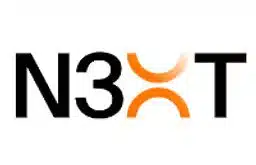General artificial intelligence is not yet here, but some say it is around the corner. We in the payment realm must prepare for the mind-boggling possibility that non-human entities will behave human-like: make money, own money, lose money, become rich, pay taxes, and build an AI social dynamic much like humans—only better.
Why did humans invent money? To facilitate cooperation, to motivate individuals to act towards growth and improvement, and to achieve comfort, security, and so forth. A remarkable invention indeed. So, if we are now talking about a community of robots and artificial-intelligence entities roaming the land, we will need to get them to collaborate. How? Re-apply what works: money.
The pursuit of money is easy to program. Unlike other pursuits, where measurement is a problem (for example, “happiness”), money is numeric—the more the better. AI planners debate whether there would be AI-dollars (Bitcoins?) or whether AI will trade with human dollars. But the incredible point here is that AI-controlled money will not be money owned by the human who “owns” the AI.
That’s because future AI entities will be built by a community of AI builders, which themselves will be built by earlier-version AI machines. That means those advanced AI entities will be owned by society at large, and abide by it, the way we humans submit to the law of the land.
Imagine a full array of money exchanges, smoothly paid by AI devices. Robots charge other robots (and humans perhaps) for their services, then they store their money, safely encrypted, and move on to invest it in a promising AI project. Some robots will become filthy rich, while others will sink into poverty. As with humans, it would be a matter of intelligence mixed with luck. AI does not eliminate the law of probabilities.
A robot that gets so poor that it cannot buy energy to “live” will unceremoniously shut down, or “die.” But, unlike the case with human death, a dead robot can get juice from a fellow robot, who will then collect the “loan” when the resurrected robot makes money again.
Will robots cheat, defraud, lie? The original idea was: Of course not; we will program them to be good. But that won’t work because AI gets its power from self-learning, from mimicking evolution (on steroids). The famous AI machines that beat humans on “Jeopardy” and in chess (IBM’s “Watson”) are simply humongous data processors that churn unbelievable amounts of information to derive conclusions that serve the human-set goal (e.g., win the chess game). But by mimicking the human brain, AI researchers have staggered layers of artificial neurons that set goals on their own, and come ever closer to the full range of human capabilities.
It was Alan Turing who predicted some 70 years ago that machines would catch up with, and then surpass, us. The biggest unknown, and perhaps the biggest challenge of modern science, is the question of consciousness. We don’t know what it is, how it arises, and whether or not robots will develop it. But even without resolving the mystery of consciousness, we can chart an AI-rich society where humans will at first be well served. For the long run, though, who knows?
Everything that we think about payments and money, including all recent innovations like digital money, will all be revisited by our artificial successors. They will scoff at our clumsiness, and usher in a smooth, frictionless, fraud-resistant currency and payment regimen, which we humans may or may not understand.
What we see today is just the beginning. Internet-of-Things devices hold wallets, pay, and get paid. Those devices are owned by a human owner, and so is the money. Similarly, we have investment software that reviews much more financial data than can be possibly studied by a human investor. These AI entities make money for their human “boss,” but they are the precursors for money-owning machines. And society will welcome this evolution because rich robots will pay a lot of taxes.
It’s all uncharted territory, so far removed from today’s pesky issues of secure and smooth payment. We tend to leave AI to the few crazy characters who are leading this revolution. But there lies the danger. We cannot leave this to a few experts. It is incumbent on all of us to fasten our seatbelts and join the crazy ride. It’s our fate.
—Gideon Samid • Gideon@BitMint.com





